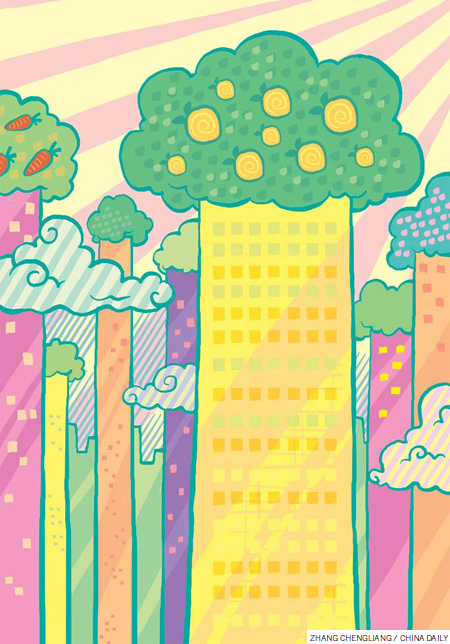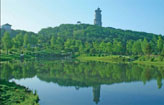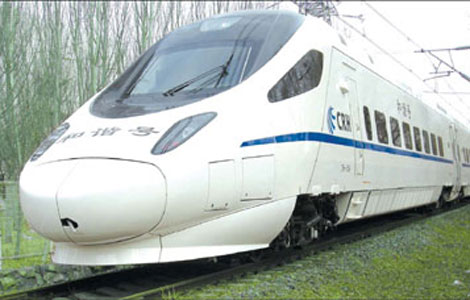Photos
Growing food on the rooftops
Updated: 2011-04-18 08:06
(China Daily)

Adopting advanced farming techniques may prevent shortages in vital supplies
I have a friend that hates living in cities. The crowds, the congestion, the incredibly fast pace, the polluted air; believe me, his list is extensive. I don't blame him; city life can make us all weary after a while. But sadly for my friend, if current global trends continue, it looks like rural living will eventually become a thing of the past.
By 2015, China will pass an important milestone: more than half of its population will be living in urban settings. Can cities like Beijing or Shanghai fit more people in? Aren't they already bursting at the seams?
To reduce the overcrowding caused by rapid urbanization, officials are floating the idea of "city clusters", where different industries and functions are spread out over a wide network of satellite cities so that populations don't centralize in one small area, like downtown Beijing. While city clusters can help reduce population pressure, they do little to address what could end up being a more serious issue: the fact urbanization is eating up arable land.
China is a big country but only 15 percent of its land is arable. To make matters worse, most of that is in the east and is directly in the path of growing cities. In Beijing alone, areas that used to be farms 30 or 40 years ago are now sprawling technology parks and housing developments. Even though the capital boasts Xiaotangshan, one of the country's largest suburban agriculture parks, it can't belie the fact that over the past 12 years urbanization has helped reduce arable land by almost 8.3 million hectares.
Besides arming my friend with another reason to dislike cities, this has a much more devastating effect on food supply. However, maybe the fact new developments are springing up everywhere can be turned into a solution - because for every building there is a roof.
The aim of rooftop farming is simple: employ unused urban spaces to provide restaurants and citizens with sustainable food supplies. Using either traditional soil farming or even advanced methods of hydroponics, the roofs of Beijing can be turned from barren slabs of concrete to lush productive gardens.
It's not a tree hugger's dream; community groups in New York, like Brooklyn Grange, have already proved that vegetables cannot only be grown on roofs but can also be sold for a profit. If it still seems unfeasible for Beijing, consider the fact there are already many buildings that have grass on roofs to prevent them from becoming giant hotplates that bake top-floor residents. Why not just turn that grass into vegetables?
I'm not saying rooftop farming is the ultimate solution, but it certainly is one tool that can be used in the fight to limit urbanization's negative effects on food supplies.
Furthermore, the willingness to investigate innovative ways to secure food supplies from encroaching urbanization could present China with the chance to lead in revolutionary new farming techniques, like vertical farming. The brainchild of microbiologist Dickson Despommier at Columbia University, vertical farming promises a future where advanced and fully automated hydroponic techniques can be used to turn a city's skyscrapers into fully functioning commercial farms.
As hydroponic systems use less water than traditional techniques, they could also be an excellent way for parched cities like Beijing to conserve water.
While the future can hold bright possibilities, one thing is for certain: the urbanization of land is not going to end anytime soon. That's why Chinese authorities need to be looking beyond traditional agricultural methods to ensure a steady flow of food for the millions who continue to flow into its urban areas.
The author teaches English at Beijing Foreign Studies University. To comment, e-mail metrobeijing@chinadaily.com.cn. The views expressed here do not necessarily reflect those of METRO.
(China Daily 04/18/2011)
Specials

Models gear up car sales
Beauty helps steer buyers as market accelerates.

Urban breathing space
City park at heart of industrial hub positions itself as top tourism attraction

On a roll
Auto hub Changchun also sets its sight on taking lead in railway sector